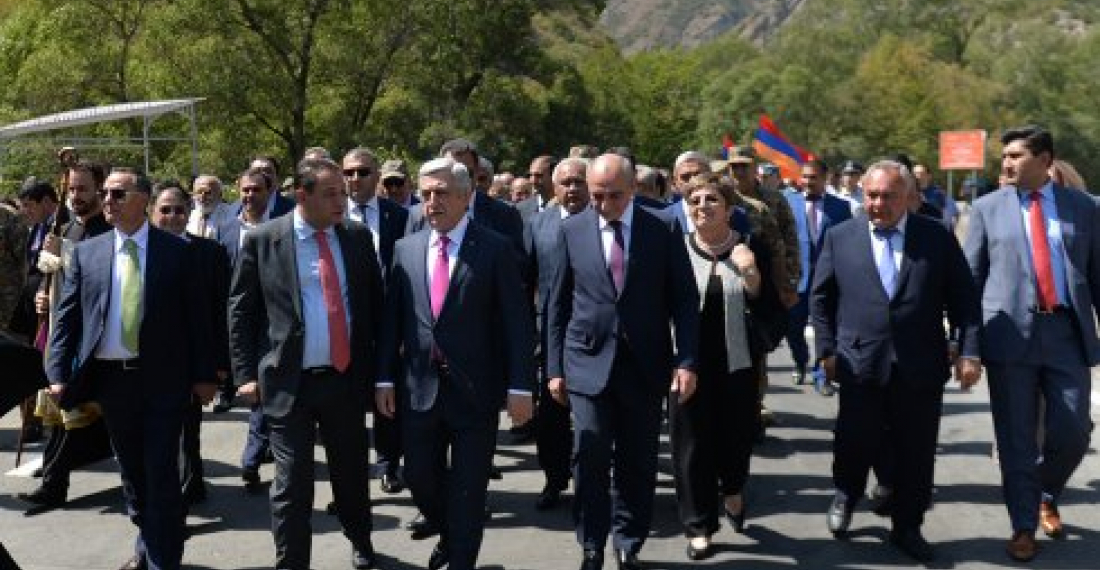Armenian President Serzh Sargsyan on Friday was in Nagorno-Karabakh where he attended a ceremony marking the opening of a new road named the "Vardenis-Martakert highway" which is expected to facilitate overland traffic between Nagorno-Karabakh and Armenia. A news item on the website of the president said that "the road was built with donations made by all Armenians, including the funds raised by Hayastan All-Armenian Fund during the 2013 and 2014 telethons and with the support of the governments of Armenia and Artsakh".
The website said "President Serzh Sargsyan on September 2 in Stepanakert will take part in the celebrations on the occasion of the 26th anniversary of the Independence of Artsakh Republic".
The territory of Nagorno-Karabakh seceded from Azerbaijan following a bloody conflict in the early 1990s. Its independence remains unrecognised by the international communtiy.
Source; commonspace.eu with agencies
Photo: President Sargsyan with other Armenian dignatries at the opening of a new road which is expected to facilitate overland traffic between Nagorno-Karabakh and Armenia. (picture courtesy of the press service of the president of Armenia)







